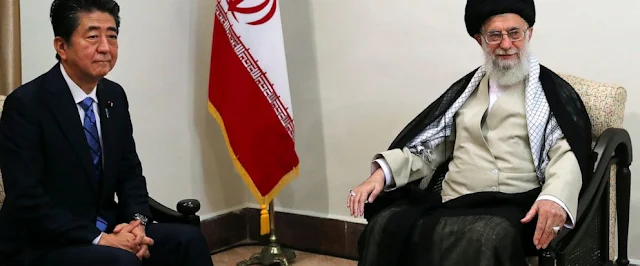Iran's U.N. Mission is calling for an urgent dialogue among all countries in the Persian Gulf region to ease tensions following attacks on two oil tankers near the strategic Strait of Hormuz.
A statement late Thursday from the mission also called on the international community to prevent "the reckless and dangerous policies and practices of the U.S. and its regional allies in heightening the tensions in the region."
"The Islamic Republic of Iran reiterates that the only solution to the tension in this region is the active and constructive engagement of all regional countries within the context of a genuine dialogue based on mutual respect, inclusivity and basic principles of international law," it said.
The mission said it is "ironic" that the United States, which unlawfully withdrew from the 2015 Iran nuclear deal, is now calling on the country to come back to negotiations.
It dismissed as "inflammatory" acting U.S. Ambassador Jonathan Cohen's statement after a closed U.N. Security Council meeting on the tanker attacks Thursday afternoon that Iran should meet the United States with diplomacy — "not with terror, attacks on ships, infrastructure and diplomatic facilities."
The mission called the statement part of "another Iranophobic campaign."
Iran's U.N. Mission says the government "categorically rejects" the U.S. claim that it was responsible for the latest incidents against oil tankers which it condemns "in the strongest possible terms."
A statement from the mission Thursday evening said "Iran stands ready to play an active and constructive role in ensuring the security of strategic maritime passages as well as promoting peace, stability and security in the region."
It warned of "U.S. coercion, intimidation and malign behavior" and expressed concern "over suspicious incidents" involving the two tankers on Thursday.
The mission dismissed as "inflammatory" a statement by acting U.S. Ambassador Jonathan Cohen after a closed U.N. Security Council meeting on the tanker attacks that Iran should meet the United States with diplomacy.
Kuwait's U.N. ambassador says he is pleased that all Security Council members condemn the latest attacks on two tankers near the strategic Strait of Hormuz, and want to see a thorough investigation.
Mansour Al-Otaibi's country holds the council presidency this month. He told reporters after a closed meeting Thursday called by the United States that he wasn't authorized to make any official statement about the latest attacks.
But he said: "We are really pleased to hear that all council members condemned what happened."
"It is a violation of international law and it's a criminal act," Al-Otaibi said.
"Everybody wants an impartial and objective investigation," he said, adding that there was no discussion on who should conduct it and no discussion of evidence.
Acting U.S. Ambassador Jonathan Cohen said he briefed the council on the U.S. assessment that Iran was responsible.
The acting U.S. ambassador to the United Nations says Iran should meet the United States with diplomacy — "not with terror, attacks on ships, infrastructure and diplomatic facilities."
Jonathan Cohen told reporters after briefing the U.N. Security Council behind closed doors Thursday at Secretary of State Mike Pompeo's request that the United States assesses the latest tanker attacks to be "yet another example of Iran's destabilizing activities in the region."
He said the "litany of incidents ... demonstrate the clear threat that Iran poses to international peace and security."
Cohen said "no proxy group in the area has the resources or the skill to act with this level of sophistication."
"Iran, however, has the weapons, the expertise and the requisite intelligence information to pull this off," he said.












0 Comments:
Post a Comment